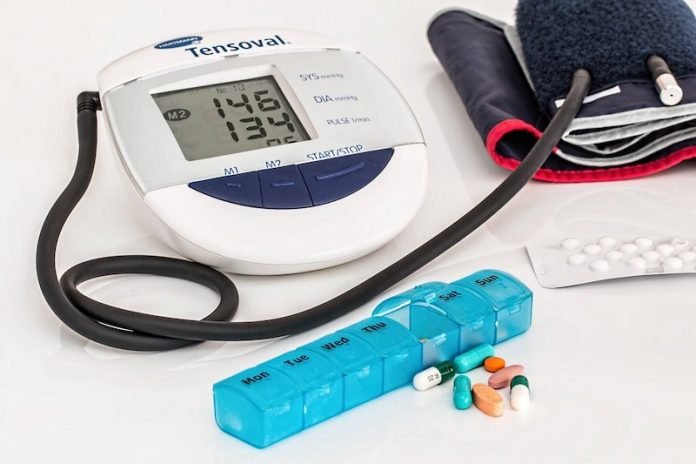
In a new study, researchers found that two widely used types of blood pressure drugs are not tied to an increased risk of COVID-19 infection or complications.
They found that there was no increased risk of COVID-19 diagnosis, hospitalization, or subsequent complications for users of either angiotensin-converting enzyme (ACE) inhibitors, or angiotensin receptor blockers (ARBs).
The study, the world’s largest, examined a group of more than 1.1 million patients in the United States and Spain using high blood pressure drugs.
The research was conducted by a team at UCLA Fielding School of Public Health and elsewhere.
People with high blood pressure have worse COVID-19 outcomes, and there remains speculation that some anti-hypertensive medications may be detrimental.
The clear answer from the study is that ACE inhibitors and ARBs pose no increased risk as compared to other treatments.
In the study, the team included more than 30 scholars from more than 20 different universities and research centers, including UCLA, Columbia University, the University of Oxford, Yale University, and the University of Dundee in the United Kingdom.
They compared people exposed to ACE inhibitors and ARBs with people taking other antihypertensives, either alone or in combination.
The study generated 1280 comparisons to assess the safety of these drugs, producing highly consistent results.
This real-world evidence support recent regulatory and clinical recommendations that patients should not discontinue ACE inhibitor or ARB therapy due to concerns of increased COVID-19 risk.
One author of the study is Dr. Marc Suchard, UCLA Fielding School professor of biostatistics.
The study is published in The Lancet Digital Health.
Copyright © 2021 Knowridge Science Report. All rights reserved.




